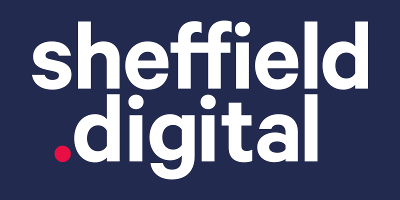Functional Tic-Tac-Toe: Speedrun
Most of us are familiar with the game tic-tac-toe. It is used frequently as a coding exercise, to implement the rules of the game in a computer program. But how quickly can it be done? And how about in a functional style, how fast can it be implemented while avoiding mutating state?
Codurance crafter Richard Wild thinks it can be done in 45 minutes, while driven completely by tests. Along the way he demonstrates the power of the functional programming features introduced in Java 8 for writing concise, straightforward code, and shows also that a problem domain and its solution do not always have to closely resemble each other.
Java EE: Ah, Ah, Ah, Ah! Stayin Alive!
There are multiple ways to get into Java software engineering. Many people will have heard of Java EE. They might be aware of the history of enterprise Java computing, some will know about the origins of Java EE, its controversial past, but also the surprising imaginative concepts of this fundamental piece of commercial and open source work, and how Java EE was a standard bearer for most of the life of the Java Virtual Machine.
This talk will give a background in Java EE, we will pick up the pieces and find out the answers to several questions. We will examine several terrific innovations, we will also find why these were simply not enough to beat the competition. We will look at Java EE’s prognosis and answer 'How will Jakarta EE meet the challenge of micro-services oriented architecture M/SOA?' and 'How does the Microprofile deliver the sustainable promise for the current cloud-native and future digital applications?'
Speaker Bios
Richard Wild
Richard has been programming for his living since 1998, but he has loved the craft ever since teaching himself assembly language as a teenager on the family computer. He apprenticed for many years grinding data on Oracle databases, picking up C, Java, C# and other languages along the way. At present he primarily programs in Java, but he is very interested in functional programming with Clojure.
Richard was switched on to Software Craftsmanship by some excellent agile coaches who taught XP, and through the association of some inspiring Software Craftspeople he has been fortunate to work with. In addition to honing his craft, he loves mentoring and teaching others how to practice TDD and how to write clean pragmatic code. Aside from programming, Richard is a keen club runner with the Bedford Harriers, doing all distances from 5K to marathons. He also enjoys cycling, blogging and making music. Richard lives in Northampton with his partner Sarah.
Peter Pilgrim
Peter is a Technical Architect and Cloud-Native Platform Engineer. He develops Java and Polyglot software, usually for `Bluechip Enterprises'. He is currently the Managing Director of PEAT LTD.
This is a placeholder for the event being held on Eventbrite. Find more information & register: www.eventbrite.co.uk
Agenda
6.30pm Doors open
6.40pm - Functional Tic-Tac-Toe: Speedrun - Richard Wild (approximate 45 minute talk)
7.25pm - Break
7.40pm - Java EE: Ah, Ah, Ah, Ah! Stayin Alive! - Peter Pilgrim (approximate 45 minute talk)
Please ensure you sign up with your full name for security purposes.
A big thank you to Skills Matter for sponsoring this event. Please help them allocate our room by signing up on their website - skillsmatter.com
This event is organised by RecWorks on behalf of the London Java Community.
You can see our latest jobs here: recworks.co.uk
You can see our privacy policy here: recworks.co.uk
Continue the conversation at our Slack Group: londonjavacommunity.slack.com
Sign up here if you're not a member: barrycranford.typeform.com
More details andtickets: www.meetup.com
Imported From: www.meetup.com
The London Java Community (LJC) is a group of Java Enthusiasts who are interested in benefiting from shared knowledge in the industry. Through our forum and regular meetings you can keep in touch with the latest industry developments, learn new Java (& other JVM) technologies, meet other developers, discuss technical/non technical issues and network further throughout the Java Community.


